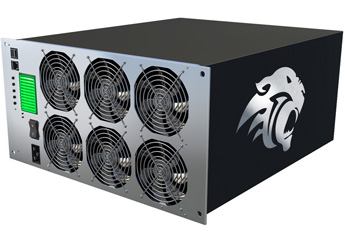Echoing the sentiment of Ryan Straus (Ridell Williams); the overarching issue at the forefront of Bitcoinland is that Bitcoiners place a lot of trust in individuals and organizations. That’s not to say placing trust in people and institutions is always a bad thing, but that trust needs to come with safeguards. The recent events at Mt. Gox are an articulate illustration of those challenges. For years, Mt. Gox was a mainstay of Bitcoin. Gox allowed many people to get involved in digital currency with ease and relative security. We can thank Gox for much of the early adoption and infrastructure of the community. Ultimately the trust was betrayed. We saw technical glitches, a lack of communication, and wild levels of volatility.
Most of this could have been prevented with solid tech, transparency, and outreach. Still, I subscribe to the idea that Mt. Gox has given us a great gift. We can learn from their shortcomings and reference their successes for the next level of Bitcoin infrastructure.
Having developed software for a while, my greatest lessons draws from moments of failure. There have been amazing tools developed purely from breakdowns in software. These tools help us prevent, detect, resolve, and communicate about technical issues which naturally and inevitably evolve. I believe 2014 is a year where we can build some of those tools for Bitcoin.
The tools the community most needs to focus on are:
Triple-entry accounting: While this term is somewhat vague, I envision it as a method for reconciling a company’s books. In essence, you could assign a Bitcoin address as the holder of funds for the traditional double-entry accounting verticals. Operating expenses, accounts receivable, salary, investments, etc. could have dedicated Bitcoin addresses for the inflow and outflow of funds. This would make it much easier to visualize funds flow both internally and from the perspective of an outside auditor.
Ledger transparency: This piggybacks off of the idea of triple-entry accounting. I half-jokingly tweeted that managers of the future will be able to crowdsource peer-review of their records. For many organizations, like non-profits and publicly traded companies, stakeholders want transparency but the presentation methods are fairly analog. The idea is to digitize all of an organization’s fund flows, and make it available on something like the blockchain - so that people who know the correspondent Bitcoin addresses could verify that financial statements are accurate.
The implications of this are far-reaching, and an understanding of how it would play out practically are to be determined. Many people would prefer to invest or donate to an organization where the financial representations were accurate. The existence of ledger transparency is inevitable simply due to the competitive advantage. The upside for the organization is increased efficiency and reduced cost for auditing, as well as a lower risk of financial inaccuracy. People want to know “How many eyes are on the books?” The answer could soon be “Everyone’s.”
Full-Reserve Bitcoin Banking: We have the technology to prevent fractional reserve of our assets. This is the cutting edge of Bitcoin security. It’s shiny, it works, and not enough people / organizations are using it. Existence and placement of assets can be cryptographically proven and movement can be restricted with extremely granular configurations (multi-sig.)
Insurance: When all else fails, there is insurance. A Bitcoin depository institution could have an extremely secure system of storage. Risk could then be calculated and deposits insured.
Modularization: In the financial industry, there is a great deal of modularization. It is imprudent to have a single entity act as a depository institution, clearinghouse, order-matching exchange, and auditor all at once. These tasks can be separated for increased efficiency, reduced risk, and greater scope-precision. This is important for three reasons:
- It is easier for business operators to build smaller-scope products.
- When one of those competing products fails, the entire system doesn’t halt - it is swiftly replaced.
- Maintenance of a module does not require system-wide downtime.
Granted, the financial community has had several hundred years to evolve to the point of efficient compartmentalization. Fortunately for Bitcoin, most of the work has been done and we simply have to parallel many of the models that exist. We can even step it up a notch with transparency and decentralization of trust.
It is important that we remember the spectrum of what we like in principle and what is possible today, this week, this year, etc. It is going to take some time to revolutionize finance with the power of cryptography. We are still waiting for sweeping changes to happen overnight. It’s been 5 years, and we’ve resigned to working on what is practically achievable in experience-based timeframes. The items discussed above are our goals for 2014. Our focus is on the option of transparency, importance of choice, and the obsoletion of coercive trust.
(1) “If I own several pounds of gold, I may not want to keep all of it in my home.” (2) CoinApex.com has taken initiative to implement TE accounting for one of their companies as a proof of concept. Research is ongoing and results will be shared by year-end.
Syndicated from http://hub.playerauctions.com/alex_waters-bitcoin-eyes-on-the-books - on March 7th, 2014


